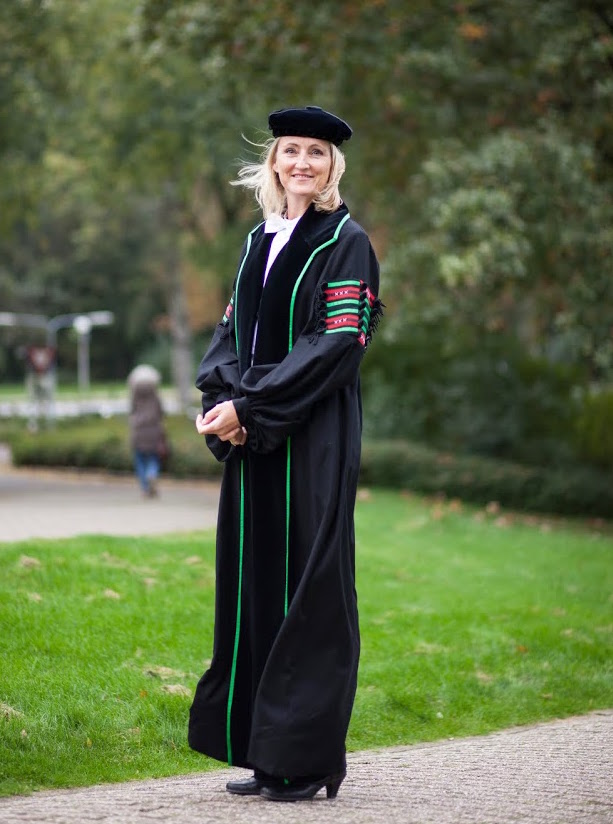 The common thread through my working life can be summarized as 'doctors and quality'. Or more specifically, the quality of (the functioning of) medical specialists. On this page I tell you more about that and on this website you can find what that has yielded (my performance), what keeps me busy now (my news) and what I am working on (my agenda)
The common thread through my working life can be summarized as 'doctors and quality'. Or more specifically, the quality of (the functioning of) medical specialists. On this page I tell you more about that and on this website you can find what that has yielded (my performance), what keeps me busy now (my news) and what I am working on (my agenda)
Proud
I don't think about it very often, but when I do - like now when writing this text - I have to admit that I am quite proud that professional performance of doctors as a theme 'stands'. In particular, that I have been able to help shape it by letting research and practice evolve together. Both my years of 'looking around' in the practice of medical specialist health care (read more on this page) and my appointment as professor of Professional Performance (Amsterdam UMC/UvA, 2013) have proven to be important. The scientific research supports, stimulates, evaluates and thus directs the practice of professional performance of medical specialists. The practice asks, slows sown if necessary, and feeds the scientific research. In my opinion, a win-win.
I am a pioneer, walk new roads. I link and connect: people, ideas, theories, possibilities. I feel rich with a great research group that I can lead at the Amsterdam UMC. Ambitious, creative, curious and caring people, who wouldn't want such a work environment?
Why doctors?
I am interested in everything that moves doctors and what they show in the exercise of their profession. The doctors themselves (what drives them, how do they look at themselves and the world, how do they learn, how do they judge?), their work (how do they run their practice, how do they combine all those different professional roles, how do they stand?) and the outcomes of their actions (does the patient feel seen and heard, does the patient get better, how do they measure quality, do they also improve if possible?).
My CV in short
In my various positions, I have been able to 'look around' a lot in practice. I have worked with and learned from individual physicians, their professional groups, hospital organizations, their scientific associations and umbrella organizations. I have moved into different perspectives.
I studied in Rotterdam at the institute for Heathcare Policy and Management (iBMG, Erasmus University). This study offered me a broad orientation on health care; for understanding our complex care system, I can still fall back on the knowledge that was provided then. This does not alter the fact that I specialized and chose a focus on medical specialist care. Since 1991, I have held various roles in the intramural, curative health care: as quality management consultant of specialists at the Dutch Institute for Healtcare Improvement (CBO), as independent consultant, as professor of Professional Performance (AmsterdamUMC/UvA, Amsterdam), as member of the ZonMw Gender & Health program committee, member of the Scientific Advisory Board of the Dutch Association of Supervisors in Care and Welfare (NVTZ, until 2017) and of various Supervisory Non-Executive Boards (Amphia Hospital, Breda (current), the St. Anna Care Group, Geldrop and of the Charitable Foundation Pink Ribbon.
After completing my dissertation on 'Visitation of medical specialists' (UvA, 2003), I was closely involved in the development of the new quality visitation model (Federation of Medical Secialists and CBO, 2004), was project leader of the national project evaluation of the Individual Functioning Medical Specialists (IFMS, 2007) and supervised, and sometimes trained, many medical professional groups with all kinds of issues. Since 2007, the quality of PGME training has also been added and I worked, among other things, on the realization of the two so-called Scherpbier reports (Report Scherpbier in 2009, on the Quality Indicators for the training, and 6 years later report Scherpbier 2.0, on the Quality Care Framework follow-up training).
For PGME or residency training, I developed, together with medical specialists, residents and researchers, in 2006 the SETQ system (System for Evaluation of Teaching Qualities) with which the training qualities of individual medical specialists can be evaluated. Dozens of papers about the SETQ system have been published (see my publications), and it sparked use and further reserah internationally. The SETQ turned out to be the beginning of the development of the Professional Performance & Compassionate Care (PP&CC) program. Insiders also know some other evaluation systems that are now part of the PP&CC portfolio such as the D-RECT (evaluating learning climate in PGME), TeamQ (evaluating teamwork amongst PGME supervisors), INCEPT (360 degrees feedback for individual physicians) and the WellNext Scan (assessing physician teams experienced wellbeing and its influending factors). On the website of the research group Professional Performance & Compassionate Care (www.professionalperformance-Amsterdam.com) you can inform yourself about this.
I would like to continue to develop the field of professional performance & compassionate care with my group of researchers and practicing doctors on the basis of current themes. Some of these themes are the vitality of doctors, the training climate within residency training and its relationship with the quality of care, and the way in which medical specialist companies (MSBs) monitor and improve the functioning and performance of their members. Since my 2020/2021 fellowship at Stanford University, CA, USA, I am convinced that the influx of women in medicine can yield a positive impact for the humanization of patient care.